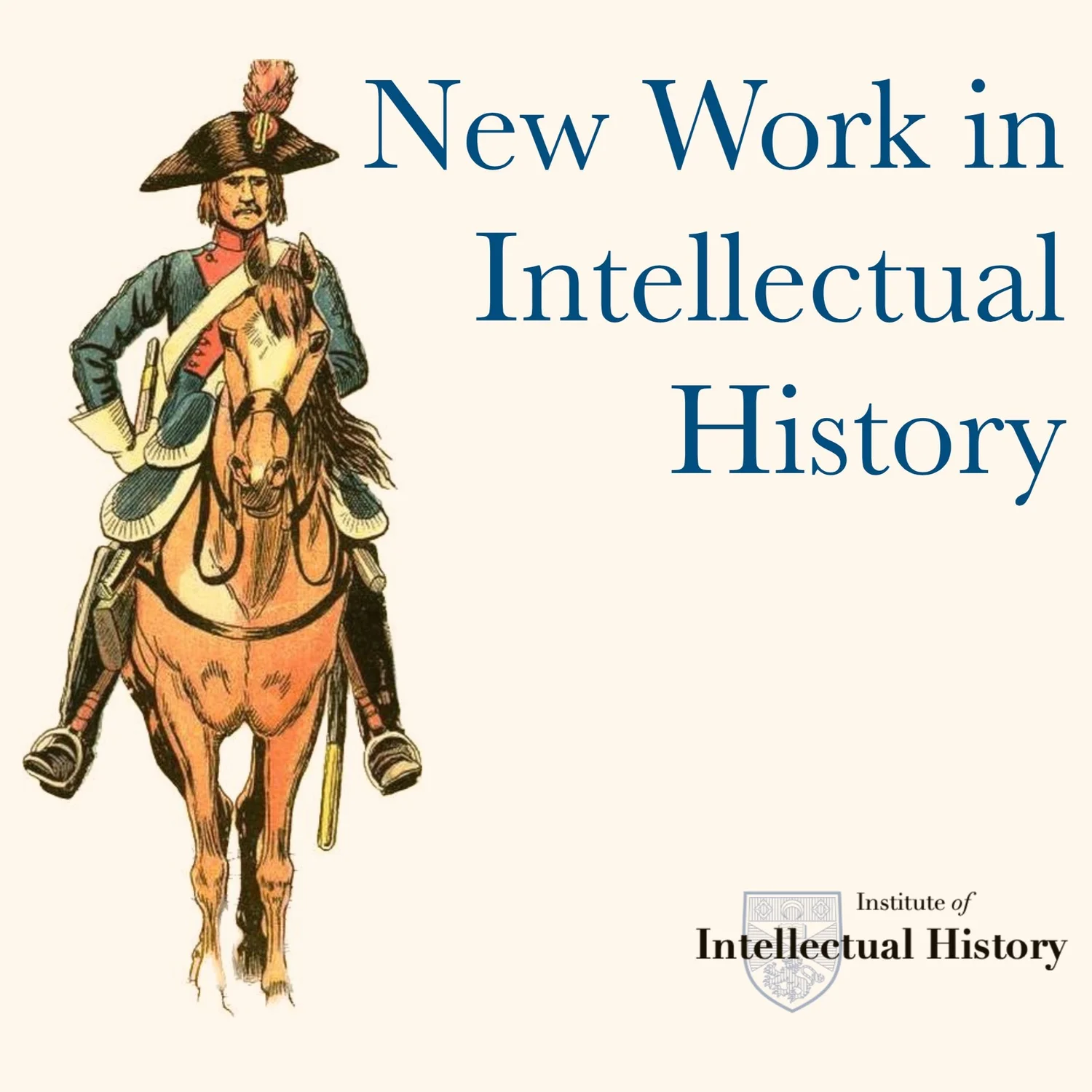

New Work In Intellectual History
Institute of Intellectual History
Listen to interviews with intellectual historians about recent research and new publications.
Episodes
Mentioned books

Sep 7, 2024 • 0sec
Conservatism
Mark Garnett, Senior Lecturer in Politics at Lancaster University, has a
bone to pick with commentators on the British conservative tradition and
the British Conservative Party. In this wide-ranging conversation, he
discusses how so often what the Party’s ideology is taken being the same
thing as conservative political thought. But for most of its history, the
Conservative Party has been anything other than conservative. Instead, we
might understand the Party’s changing ideology in terms of the overlapping
and competing perspectives of liberalism, nationalism and pragmatism. And
we might also think again about what ‘conservative political thought’
actually has been in England the past two centuries.

Aug 14, 2024 • 0sec
New Podcast: Zeitgeist und Geschichte
In this bonus episode, we bring an interview with Professor Peter Gordon
about the philosopher and social theorist Theodor Adorno (1903 - 1969). The
interview is part of a new podcast series on German Intellectual History
entitled Zeitgeist und Geschichte. Discover more episodes here and
subscribe on iTunes or Spotify.

Jul 13, 2024 • 0sec
Why Not Moderation? Letters to Young Radicals
In this episode, Richard Whatmore speaks with Aurelian Craiutu about his
new book Why Not Moderation? Letters to Young Radicals (CUP, 2023).
The book challenges the conventional image of moderation as a “simple
virtue for lukewarm and indecisive minds, searching for a fuzzy center
between the extremes.” Instead, he shows moderation to be a complex virtue
with a rich tradition and unexplored radical aspects. With its epistolary
form, the book presents an imaginary dialogue between two young radicals
and a passionate moderate, thereby outlining the distinctive political
vision undergirding moderation in modern America.

May 17, 2024 • 0sec
Art and Politics in Roger Scruton’s Conservative Philosophy
In this episode, Ojel L. Rodriguez Burgos interviews the historian of
political thought Professor Ferenc Hörcher about his new book Art and
Politics in Roger Scruton’s Conservative Philosophy (2022).

Jan 4, 2024 • 0sec
Hegel’s World Revolutions
In this wide-ranging interview, Richard Bourke (King’s College Cambridge)
discusses not only Hegel’s anatomy of the modern world, but how Hegel’s
reputation changed over the twentieth century. In doing so, we discuss the
significance of not only Hegel’s thought to contemporary society, but also
the study of the history of political thought in general.

Dec 26, 2023 • 0sec
After Kant: The Romans, the Germans, and the Moderns in the History of Political Thought
In this episode, Emilie Aebischer speaks with Prof Michael Sonenscher about
his most recent book After Kant - The Romans, the Germans and the Moderns
in the History of Political Thought (PUP, 2023).

Dec 18, 2023 • 0sec
Liberalism Against Itself – Cold War Intellectuals and the Making of Our Times
In the aftermath of the Second World War, many prominent liberals looked
towards the future with eyes of disillusion and fear. In response they
jettisoned key progressive ideals of the Enlightenment, such as equality
and perfectibility, and formulated a defence of liberty in opposition to
communism and totalitarianism more generally. In his new book, Samuel Moyn
argues that the intellectual architects of Cold War liberalism truncated
the liberal tradition and thereby left a disastrous legacy, leaving
liberals unable to address the problems that face us today.

Nov 13, 2023 • 0sec
Europe Against Revolution
In this episode, Robin Mills speaks with Matthijs Lok (Amsterdam) about his
recently published book Europe against Revolution - Conservatism,
Enlightenment, and the Making of the Past (OUP, 2023). In this book,
Matthijs explores what counter-revolutionary thinkers in the decades around
1800 thought about Europe. Many of his conclusions are surprising, with
critics of the French Revolution often being proponents of cultural and
religious diversity, cosmopolitanism and political moderation that they
viewed as unique to Europe. They believed themselves to be the true heirs
of the European Enlightenment, rather than the radical materialist atheists
who had taken over France.

Nov 6, 2023 • 0sec
Welfare for Markets - A Global History of Basic Income
In this episode, Robin Mills speaks with Anton Jäger and Daniel Zamora
Vargas about their new book Welfare for Markets - A Global History of Basic
Income (UCP, 2023). In their book, Jäger and Vargas trace the history of
basic income from its rise in American and British policy debates following
periods of economic and political crisis to its modern popularity among
‘techno-populists’ in Silicon Valley. They describe how the idea gained
traction in the United States and Europe in the 1960s as a market-friendly
alternative to the postwar welfare state and how interest in the policy has
grown in the wake of the 2008 financial crisis and again after the COVID-19
crisis.

Oct 14, 2023 • 0sec
Scarcity - A History from the Origins of Capitalism to the Climate Crisis
In this episode, Robin Mills speaks with Fredrik Albritton Jonsson and Carl
Wennerlind, authors of Scarcity - A History from the Origins of Capitalism
to the Climate Crisis (HUP, 2023). In this book, modern economics is shown
to be founded on a particular view of scarcity, in which human beings are
said to be possessed of indefinite desires. Society must therefore
facilitate endless growth and consumption – regardless of the limitations
of the natural environment. Jonsson and Wennerlind examine the intellectual
origin and context of this vision of scarcity and demonstrate its
historical contingency, even in the age of capitalism. It reflects the
triumph of infinite-growth ideologies at the expense of all other
conceptions of scarcity that sought to live within nature’s constraints.


